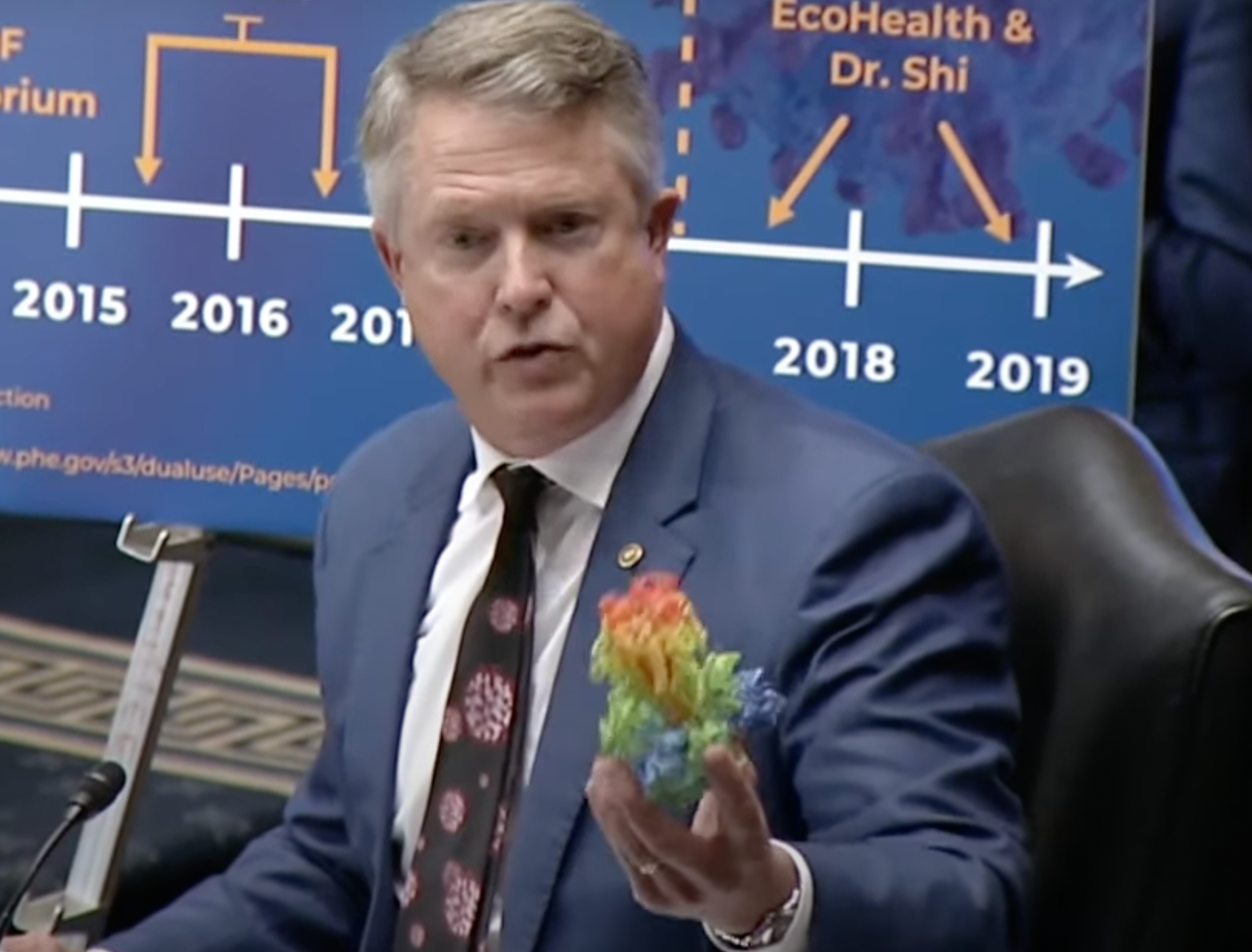
Washington, D.C.— U.S. Senator Roger Marshall went to the Senate floor Thursday and asked for unanimous consent to pass two of bills aimed at halting risky gain-of-function (GoF) research sponsored by the U.S. federal government.
The first bill, the Viral Gain of Function Research Moratorium Act, would place a moratorium on all federal research grants to universities and other organizations conducting GoF research and risky research on potential pandemic pathogens.
The second bill, the SAFE Risky Research Act, would target GoF research taking place in countries of concern. Both pieces of Senator Marshall’s legislation were blocked by Senate Democrats.
While speaking about the Viral Gain of Function Research Moratorium Act, Senator Marshall said in part,
“It is disturbing that one of our top public health agencies directed this risky research to be offshored while encouraging the pause in that exact same research in the U.S… Despite warnings and past lab accidents, our public health agencies like NIH continue to fund the WMD research, often in China nonetheless… Shockingly, Congress has minimal insight into the amount of this research at NIH. There is no transparency into their risk evaluation process… This is a national security issue… We must pause this research until national security experts can help create appropriate risk metrics, guardrails and processes for this research…”
While speaking about the SAFE Risky Research Act, Senator Marshall said in part,
“If my colleagues do not agree with placing a full moratorium on gain of function research, I ask for unanimous consent to adopt the SAFE Risky Research Act, which stops federal funds from being used to conduct risky research with countries that threaten our democracy and public health… This legislation is commonsense. We shouldn’t be collaborating on dangerous research with our adversaries… Given the inherent risk, NIH’s unwillingness to fully cooperate with congressional oversight, and Senate Democrats objection to taking the needed step of placing a complete moratorium on gain of function research, we must at least pass this narrow approach today.”





